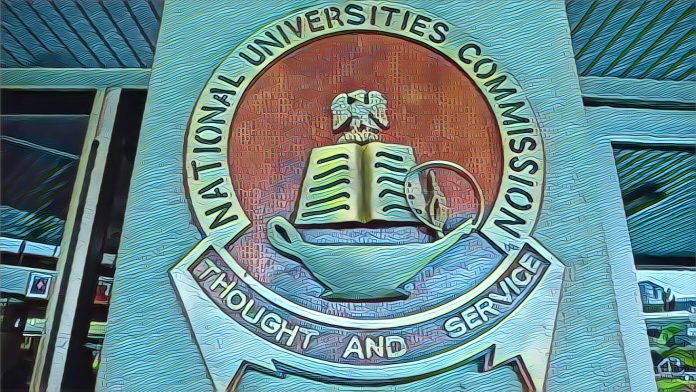In a decisive move to uphold educational standards, Nigeria’s National Universities Commission (NUC) has announced a significant ban on 18 foreign universities operating within its borders. The NUC, which is the primary regulatory body for higher education in Nigeria, has labeled these institutions as “degree mills,” citing their failure to meet the country’s stringent educational standards and regulations.
The NUC’s decision, disclosed in a statement on its official website, followed an undercover investigation led by Umar Audu. Audu, having obtained a degree in Mass Communication from ESGT University in Cotonou, Benin, in just six weeks, managed to participate in the mandatory one-year National Youth Service Corps (NYSC) scheme. This alarming revelation was a crucial factor in the NUC’s crackdown.
The banned universities, which are predominantly based in the United States, United Kingdom, and Ghana, have been accused of violating the Education (National Minimum Standards, etc.) Act of the Federation of Nigeria, 2004. According to the NUC, these institutions have not been licensed by the Federal Government and have been operating in contravention of national educational norms.
Among the blacklisted universities are notable names such as the University of Applied Sciences and Management, Port Novo, Republic of Benin; Volta University College, Ghana; the International University, Missouri, USA; and the Columbus University, United Kingdom. These institutions had established various campuses and study centers across Nigeria, which are now subject to closure.
The list further includes Tiu International University, UK; Pebbles University, UK; London External Studies, UK; Pilgrims University; West African Christian University; EC-Council University, USA; and Concept College/Universities (London), along with several others.
This move by the NUC is a clear indication of Nigeria’s commitment to safeguarding the integrity of its higher education system. The proliferation of “degree mills” poses a significant threat to educational standards, misleading students and undermining the value of legitimate degrees.
The NUC’s crackdown is not just about closing unlicensed institutions; it is a broader effort to protect students from academic fraud and ensure that Nigerian students receive a quality education that is recognized and respected globally. The decision to ban these institutions sends a strong message to other foreign universities operating in Nigeria that adherence to national standards and regulations is non-negotiable.
The aftermath of this decision is likely to have far-reaching implications. Prospective students and parents are now more aware of the need to verify the accreditation status of foreign universities offering programs in Nigeria. Moreover, this development could prompt a nationwide introspection on the state of higher education and the need for stringent regulatory measures to prevent the recurrence of such scenarios.
For the affected students, this ban raises concerns about the validity of their degrees and their academic future. The NUC, along with other educational bodies, may need to establish pathways to assist these students in transitioning to accredited institutions, ensuring that their academic pursuits are not derailed.
In conclusion, the NUC’s ban on 18 foreign universities is a bold step towards maintaining educational excellence in Nigeria. While it addresses immediate concerns about “degree mills,” it also opens up a broader dialogue on the quality and integrity of higher education in Nigeria. This decisive action is a cornerstone in Nigeria’s journey to elevate its academic standards and fortify its education system against substandard foreign educational ventures.



